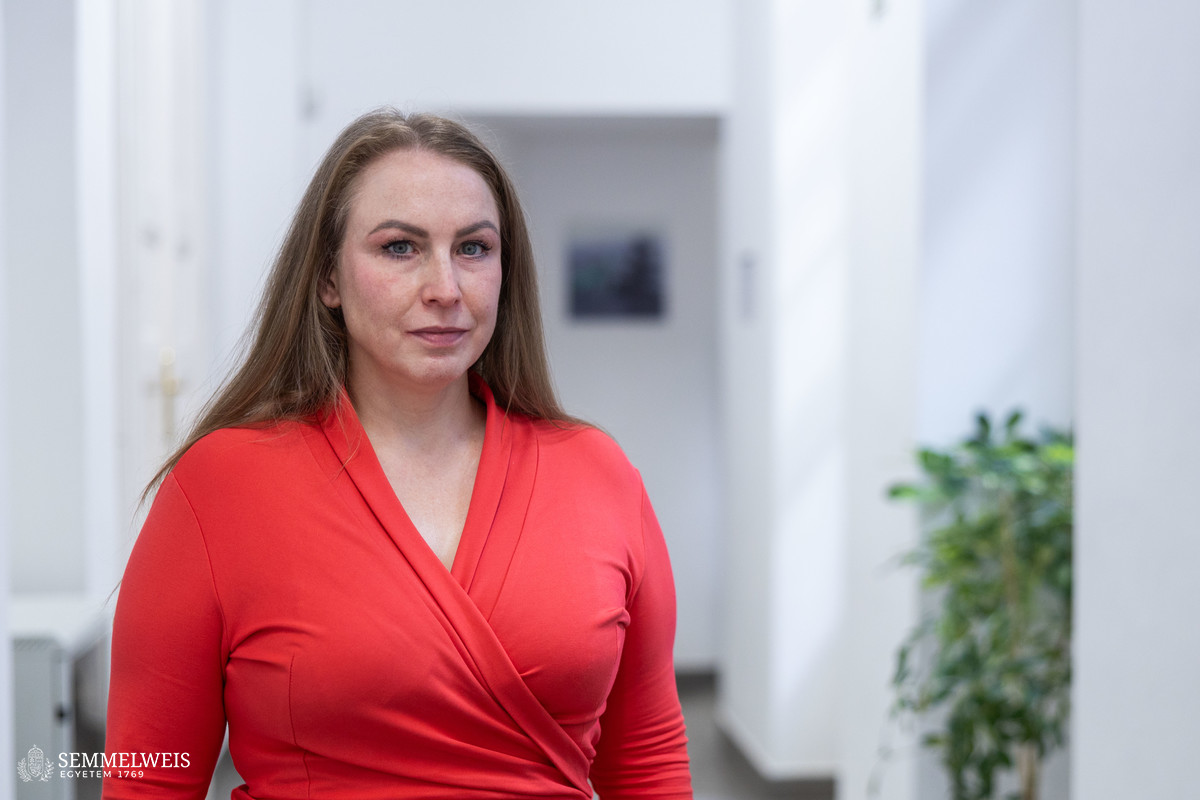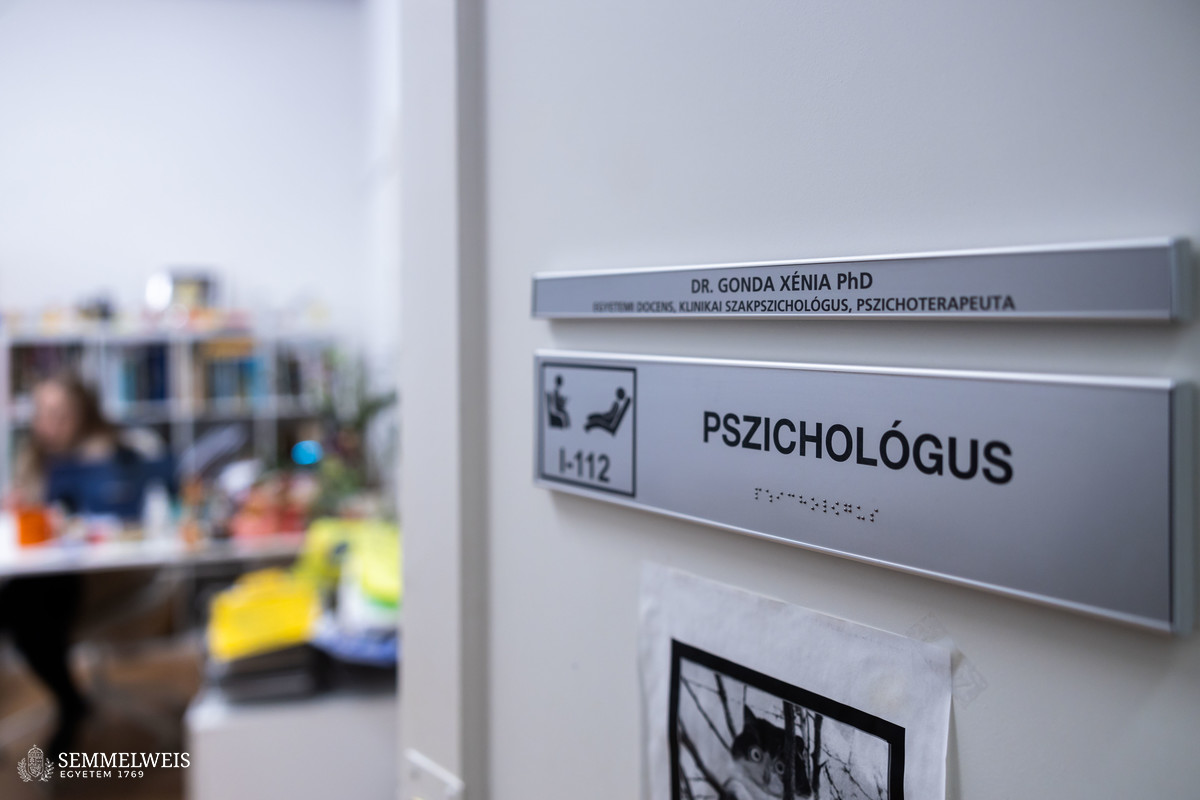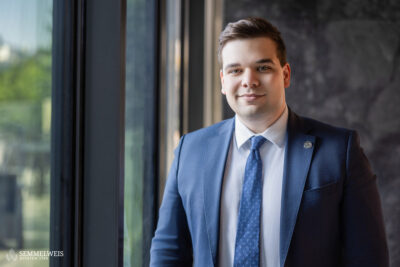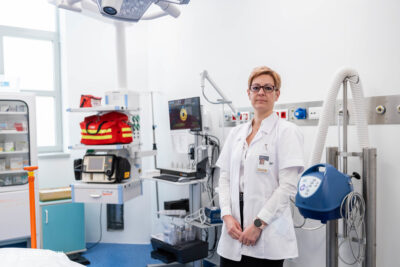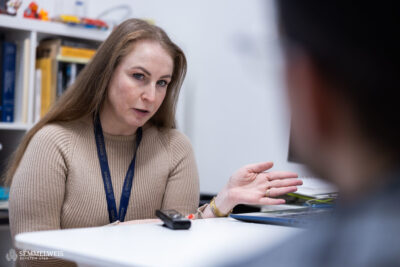 The Department of Clinical Psychology had been a separate organizational unit at the university for a long time, but last summer the Senate decided to merge it into the Department of Psychiatry and Psychotherapy. Dr. Xénia Gonda took over the leadership of the Department of Clinical Psychology from Dr. Dóra Perczel-Forintos in December, and she also heads the specialist outpatient clinic, which has become part of the Department of Psychiatry and Psychotherapy. In addition, retaining the responsibilities she has had, she continues to coordinate the work of the team of psychologists in the Szent Rókus Clinical Block.
The Department of Clinical Psychology had been a separate organizational unit at the university for a long time, but last summer the Senate decided to merge it into the Department of Psychiatry and Psychotherapy. Dr. Xénia Gonda took over the leadership of the Department of Clinical Psychology from Dr. Dóra Perczel-Forintos in December, and she also heads the specialist outpatient clinic, which has become part of the Department of Psychiatry and Psychotherapy. In addition, retaining the responsibilities she has had, she continues to coordinate the work of the team of psychologists in the Szent Rókus Clinical Block.
In addition to her, the clinical psychology outpatient clinic is staffed by three specialist psychologists and five residents. By offering optional courses, the Department of Clinical Psychology is involved in undergraduate education and, as part of the Department of Psychiatry and Psychotherapy, in the teaching of psychotherapy and psychodiagnostics; it also runs several forms of refresher training and organizes its own courses. The main profile of the Department of Clinical Psychology is the training of specialist psychologists.
“I am completely research-oriented,” Dr. Xénia Gonda said, stressing that, among other things, she was planning to boost the department’s research output.
But this is not easy. So far, I have mainly worked on the genetic background of dysphoria, but undertaking psychotherapy research is difficult: The number of cases is low, and even though cognitive behavioral therapy, the method used in the specialist outpatient clinic, is conducted in around 15-20 sessions only, patient data with sufficient statistical power is slow to accumulate. In addition, the workload of my colleagues in the outpatient clinic is huge. – Dr. Xénia Gonda
She added that their plans included, for example, measuring the effectiveness of psychotherapy using imaging techniques, biomarkers, genetic characteristics, and gene expression methods. She is also very proud of her residents in specialist psychology – ten out of 21 of them are or were involved in the PhD training in some form – and her own PhD students: “It is through them that we have research collaborations with the Assisted Reproduction Center (ARC), the Rehabilitation Clinic, the Center for Geriatric Care and Nursing Science, and the Department of Family Medicine, among others. We are involved in a number of research projects: We are investigating the relationship personality and behaviors have with the success of in vitro fertilization, the prediction of perioperative analgesic need, and the development of hypertension, diabetes, as well as of their complications; we are also looking at the effectiveness of VR therapy in the care of elderly patients. We have some research on suicide, we are working on the context of a new dimensional concept of personality disorders, and, of course, several of my PhD students have joined the research group I have been working with since the beginning of my career; they are investigating the relationship between genetic background, early trauma and current stressors, circadian rhythms, and depression. It is useful and important to explore the role of psychological factors everywhere,” she underlined.
In 2002, Dr. Xénia Gonda graduated from Eötvös Loránd University (ELTE) with a degree in Psychology and from Semmelweis University’s Faculty of Pharmaceutical Sciences (GYTK). “I have always been fascinated by what the human brain is capable of on a behavioral level, yet how fallible it is in the sense that we often have no control over what we feel and how we think,” she said, recalling her career choice.
She was mainly interested in the biology of brain function, how much it is inherited and to what extent it can be influenced, how different psychological schools approach it – and how all this can be used to help people.
“I was also deeply interested in the biochemical side of it all, how certain molecules, once in our bodies, can dramatically change our mood, state of mind, and behavior,” she added. “At the beginning of my studies, the first research findings were starting to come out showing that the effects of psychotherapy could be detected by imaging techniques, by changes in blood and inflammatory markers – and I felt that everything I had learned up to that point was starting to come together. I am a great believer in psychotherapy and that we can and must help patients and anyone who is psychologically distressed, and that this can and must be researched using scientific methods,” she recalled.
Dr. Xénia Gonda is also involved in several international collaborations, is an editor or editorial board member of several foreign-language journals, and she regularly gives presentations on clinical and research topics at national and international conferences.
As a leader, it is also essential for her to promote continuous training opportunities for her colleagues. “I myself am a clinical psychologist and psychotherapist, I have a specialist qualification in cognitive behavioral therapy, I am training in schema therapy, and I have also taken a course in group analysis, but this field is constantly evolving, newer and more effective psychotherapeutic methods are emerging, so I am planning other training courses as well. I also encourage my colleagues to do so, and they are very open to this – despite the fact that training is not only very time-consuming, but also expensive,” Dr. Xénia Gonda emphasized. “I can consider myself lucky to be surrounded by dedicated specialists in whom I can have absolute confidence, both professionally and on a personal level,” she pointed out.
Ádám Szabó
Translation: Dr. Balázs Csizmadia
Photos by Bálint Barta – Semmelweis University
